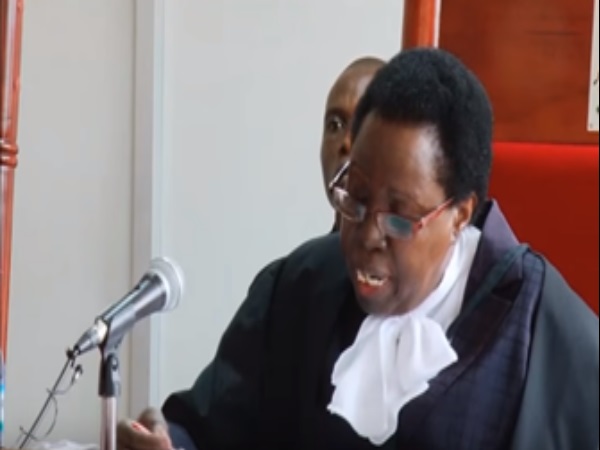Despite effectively defending the government in the Court, the Office of the Attorney General saw the Court awards liability grow significantly pausing a big threat to the taxpayers’ money. On Thursday this week even before trial, 22 suspects charged with murdering former AIGP Andrew Felix Kawesi won round one in the High Court after Justice Margaret Oguli Oumo ordered the government to pay 1.7billion shillings to them for torture and treatment in a cruel manner by the Police. “I hereby declare that the detention of the applicants in Police custody having declined to descent them on remand to Luzira Prisons was a violation of their rights...” Said, Justice Margaret Oguli Oumo – High Court.
The 1.7 billion shillings the government lost to the 22 suspects was part of the bigger cost the government faced every Financial Year. According to the Ministry of Justice and Constitutional Affairs. Ministerial Policy Statement for the Financial Year 2017/2018, Court Awards took 33 billion shillings on the total budget of the Ministry. According to Lawyer Severino Twinobusingye, the Police was the root cause for poorly handling cases. “The Police arrested and in most cases, they actually arrest and then they start investigating. So where it happens is, they arrest, they torture in the process of trying to extract information and after investigating they find that the person who was brutally tortured in the name of extracting information was innocent.” Said, Severino Twinobusingye – Lawyer. Since the Office of the Attorney General seemed to have failed to decentralize payments for quarter awards, Twinobusingye said these awards attracted big interests over time and thus the burden was felt by the taxpayer. “The persons who feel the pinch are mostly two, the one who had been unfortunately tortured when he is innocent; that one has suffered, the torture you can see that they have permanently been disfigured and the other one is the taxpayer. Because these are the acts committed by the officers of the government and as officers of the State and then the Attorney General takes the responsibility including meeting the costs to compensate the victims and that money does not come from the pocket of William Byaruhanga himself, it comes from the Treasury.”
Even when this budget was provided for, the Ministry had consistently demanded an additional budget to boost operation budget to effectively carry out the Ministry mandate. But what impact did this have on the economy? “Then interests start accruing year after year depending on the amount of money which has been awarded. If for example, it is billions, take for example my case; in 2012 the Court awarded me 13 billion. The Attorney General never appealed and the bill is there. So as we speak, it is about 22 billion; from 13 to 22 billion. So who will suffer ultimately? The person who suffers most is the taxpayer.” The biggest portion of the budget of the Ministry of Judiciary went to Court Awards, one would assume that with this facilitation the budget would be coming down, however, it was the total opposite every Financial Year the budget escalated.

